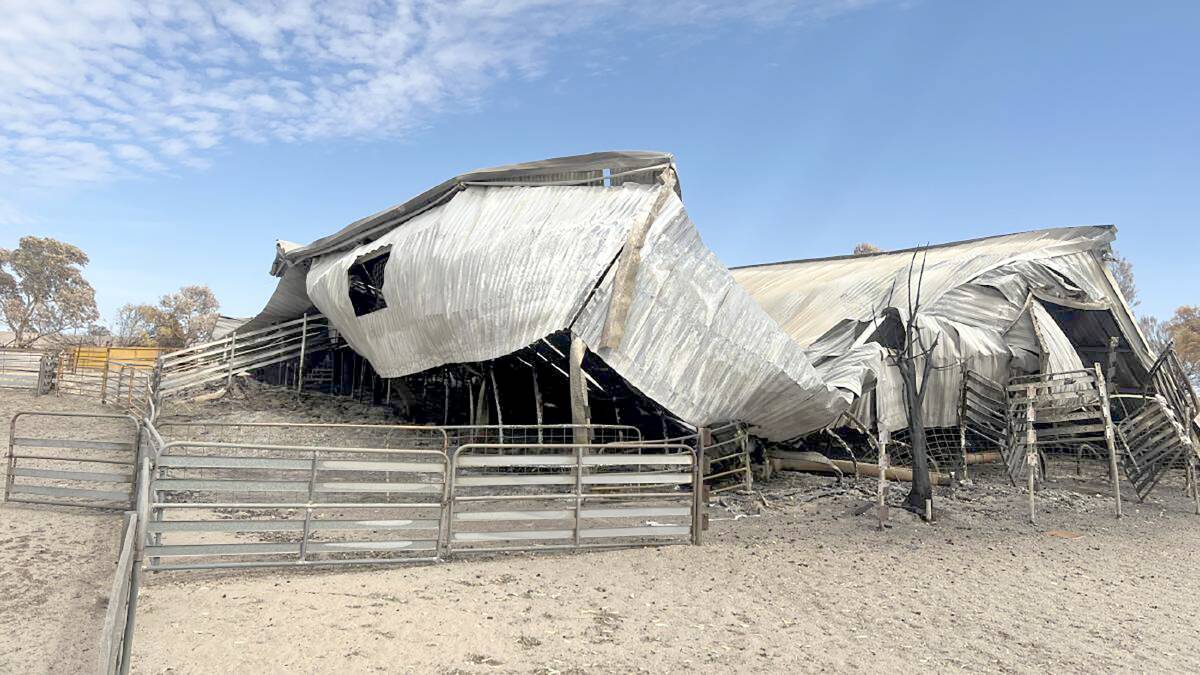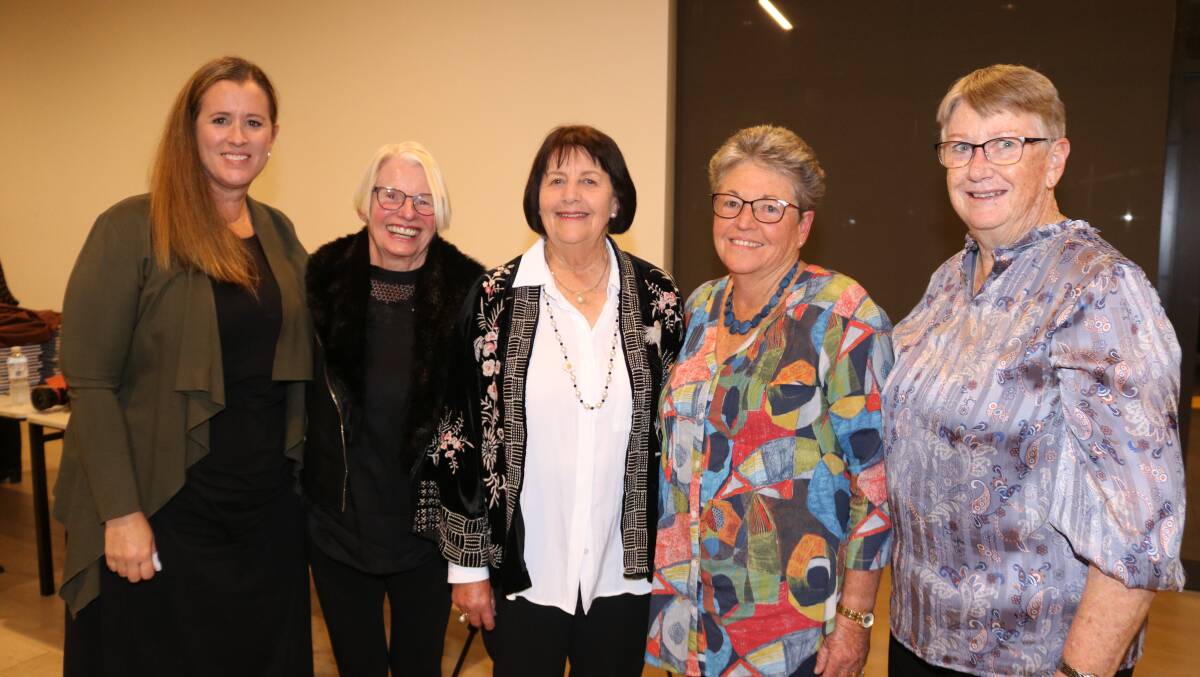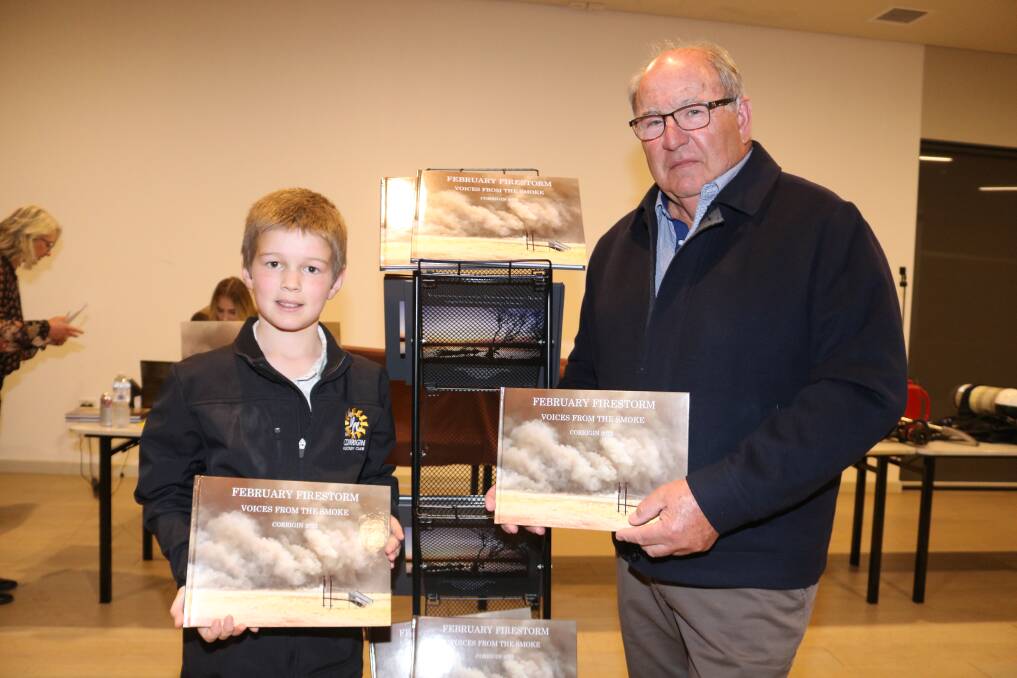
"There is nothing like an emergency to bring out the best in people.
Subscribe now for unlimited access to all our agricultural news
across the nation
or signup to continue reading
"No amount of training could have prepared us for the scale of the emergency on that day."
They were some of the opening remarks by Shire of Corrigin chief executive officer Natalie Manton at the official launch of February Firestorm, Voices from the Smoke, at the Corrigin Recreation and Events Centre recently.
About 100 people attended the book launch that recalls incredible tales from February 6, 2022 - a day when major bushfires devastated the Corrigin community and threatened the town itself.
Alerts from the Department of Fire and Emergency Services (DFES) in the two days leading up to fires, warned of catastrophic weather conditions.
Ultimately on that Sunday morning, those forecast conditions became the perfect storm that saw the two raging fires burn across almost 45,000 hectares in the Shires of Corrigin, Bruce Rock, Kondinin and Kulin.
Four houses were destroyed and a further 15 buildings were damaged, along with shearing sheds, machinery sheds and other outbuildings.
Machinery, farm tanks, stored grain and hay, chemicals and fencing were also major casualties.
Farmers and vets had the heartbreaking task of putting down about 1000 sheep that were either injured or badly burnt.
A major loss for the Bilbarin community was the destruction of the town hall which was described as a bitter pill to swallow for locals.
About 200 power poles were also burnt - and at critical moments, phone towers were down.
Ms Manton said her hastily-scribbled notes from that day served as a reminder of the huge amount of information to be comprehended and the quick decisions that had to be made.
She said other fires in the Wickepin and Narrogin areas on the same day stretched resources and also closed escape routes for a possible evacuation.
The Corrigin Recreation and Events Centre became a safe refuge for about 100 people, with a second evacuation centre also established in Pingelly.
By the Monday morning, Shire officials were being swamped from people wanting to help, as well as those who were still dealing with the ongoing fires and wanting answers.
Ms Manton said the only way for them to cope was to close the shire offices to normal operations, transforming it into a command centre.

She said that first week was a whirlwind of briefings and meetings with DFES, the Minister for Emergency Services, politicians and the media.
"And let's not forget we were in the middle of a COVID pandemic, so meetings were held outside in a courtyard or by video conferencing," Ms Manton said.
She said it was a massive event to co-ordinate all the responses, even down to keeping people fed.
"The fire on February 6 will be etched in our memory forever and those who have suffered losses, will take years to recover from," Ms Manton said.
She said damage to farms and its associated infrastructure, along with the natural environment, was enormous, but could have been worse and it was incredible that no lives were lost.
"The Corrigin community has seen amazing kindness, generosity and a willingness to help those in need," Ms Manton said.
She said the community has benefited from the wisdom of others who have been through similar experiences and they were ready and willing to help others in the future.
Ms Manton said they shared their knowledge and lessons in the hope of making this difficult process easier and less stressful.
"Our community is incredibly resilient and its strength shines out in adversity," she said.
Val Downing, one of the co-ordinators of the book, said the stories were reflections of a day when the Wheatbelt town was under major threat because of catastrophic weather and fire conditions.
"This book is a history that future generations will be able to read," Ms Downing said.
"Many community members put their lives in danger to try and save property and livestock.
"For women, children and townies, there was the reality of an evacuation.
"This is the story of the book."

Ms Downing said they wanted to produce something that featured multiple voices of the fire-affected community.
"When calling for stories, we made it clear from the start that no story was too big or too small and we have accepted them all in good faith," she said.
"We were a conduit for them and their experiences."
At all stages of the project the editorial committee was conscious of the ongoing mental and emotional anguish of many of the farmers and firefighters who were affected.
Ms Downing said they understood and respected that not everyone was ready to share their stories.
"On the other hand, some who were involved in fighting the fires and/or evacuating wanted to speak," she said.
"They wanted to tell their stories and needed little encouragement in sharing their experiences.
"For many it was the first time they had shared their encounter of the day."
With the Corrigin Community Development Committee underwriting the costs of the book, 300 copies were printed and sold for $40 each.
Ms Downing said the book was a collaborative effort between herself, Jenny Pitman, Sue Courboules and Jackie Jones who co-ordinated the stories, and with the support of Kellie Bell, who created the photo book.
They first met in April last year and regularly after that, finishing the stories late in the year.
She said they endeavoured "to record as accurately as possible the stories we were given".
Corrigin Shire president Des Hickey said the devastating fires would be in the memories of Corrigin people for the rest of their lives.
He said it was the biggest emergency the local shire and community had to deal with in current times.
"The fire has certainly changed our landscape forever," Mr Hickey said.
At the launch he said the possible merger of two large fires, changes in wind direction and the possible evacuation of the entire town were major scenarios they were dealing with as the fire fronts threatened.
He said it soon became apparent that a mass evacuation was out of the question with access routes out of town being blocked.
Reflecting on how cohesive the community was in the wake of the fire, Mr Hickey said response co-ordinators didn't have to wait for things to be done - and to have the depth and strength within the community was "absolutely fantastic".
He said it showed the strength, not only from his community, but also the support they had from all the communities around them.
And to manage all the responses, while still under COVID protocols, was a fantastic result.
When Mr Hickey addressed a town hall meeting of more than 300 people on the Monday after the fires, he was confronted with looks of absolute despair and shock on most people's faces.
"From my perspective, looking back to the audience, it was a vision that I will never, ever forget," Mr Hickey said.
The local farmer "each and every person was hurting".
Mr Hickey was full of praise for the team behind producing the book and everyone who played a part.
"It is an amazing group to have the initiative and the directive to formulate and construct a story out of all of this devastation," he said.
He said there were stories "that will make you cry" and stories that "will tug at the heart strings of our community".
Equally, Mr Hickey said, there were stories that would make the reader laugh.
"This is a fantastic way for many to heal from the catastrophic day, thankfully with no injuries, but there are stories about close encounters - and we do know that - some are written and some or just a mythology within our community," he said.
Mr Hickey said the book covered all aspects of the devastating fire, including the recovery, the heartache, the unknown of what to do or how to do it, the rebuilding phases and the resources needed.


